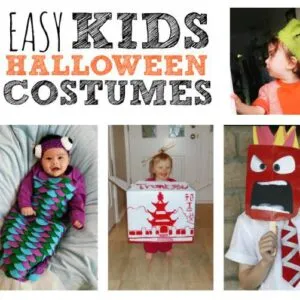Kid Backtalk: What to Do and Consequences for When Your Kid Talks Back

“Hey sweetie, make sure to put your lunch in the refrigerator so it doesn’t go bad.”
I KNOW THAT ALREADY.
Whoa. I freeze. I asked my 8-year-old daughter one thing. I’m not mean. I simply asked her to put her lunch in the fridge!
And what is this? Just five-minutes-earlier she was telling me about this new art project she wanted to try and now.
Vitriol.
Anger.
All seemingly directed at me.
But its not about me. And its not about you either when your child turns on you with the rage of emotions and backtalk.
Just because there’s a reason, doesn’t mean it has to continue. Here’s how to handle it when kids talk back in a way so that talking back doesn’t continue.
Read: How to Deal with Your Tween’s Mood Swings
First, WHY?
As kids grow, they test limits. We know this and hear this as parents. Most experts say that you need strict rules and guidelines.
Many parents hear that and think they need to be strict disciplinarians – you set the rules and if you’re not adhering strictly to those rules, you’ll somehow raise a delinquent.
I call BS on that.
It’s not strict rules that’s going to stop the backtalk from your kids. It’s empathy and setting a strong boundary on how you want to be treated.
Putting empathy first will help you raise a kind-hearted kiddo who not only knows how to respect others but also why they feel these strong emotions.
I’m going to help you with that.
READ: How to Deal with a Grumpy Child
Your no-backtalk master plan.
There’s a few elements in our master plan. There won’t be any consequences in the punishment sense. Rather your reaction, will be the natural consequence.
Here’s the plan:
- Master the freeze
- Refuse the behavior but love the child
- Teach Kids about their brain
Let’s do this.
Master the freeze
When my daughter yells at me, I freeze.
I don’t yell. I don’t react. I get eerily quiet.
In fact, I’m mad. Inside I’m a boiling rage of fury and emotions with tons of thoughts fluttering through my head:
- Doesn’t she know how much I do for her?
- I just spent all afternoon driving her around.
- I totally don’t deserve this.
But, I don’t say any of those things. Why? Because as a teacher, I watched a few other teachers yell at students.
These teachers weren’t effective with behavior. Their students weren’t scared into suddenly being quiet and doing all their work.
Instead, kids laughed at them. These teachers were labeled “crazy”.
No, the yellers had no control over their classes.
Who did have control were the teachers who showed tons of love to their students and then, when a behavior was out of bounds, they got eerily quiet.
They stopped. They froze. They didn’t yell.
Rather, they quietly walked up to the student, leaned down to their level and spoke to them in such a low voice that no other students could hear.
Usually, that student listened and chose another more acceptable behavior.
“Oh no, you didn’t…”
That’s what I want you to think when you hear backtalk. Stop and think “Oh no you didn’t..” Take a deep breath, turn to your child and stare.
Hold the stare. Let it be silent.
If your child doesn’t apologize – or says “What?” “What?” which eggs you on further – say, “I’m sorry, what did you say?”
Tone here is important. Your child will always mirror your tone. Keep it calm and you’ll see your child’s tone will also lean toward calm. Yell and be angry and they’ll match it.
READ: How to Discipline a Sassy Child
Refuse the Behavior but Love the Child
Here’s where I tell my kid how I feel when she yells at me. I focus on emotions deeper than frustrated and mad – though both of those emotions are valid.
Instead, I use hurt, disappointed, sad.
“I feel hurt when you yelled at me for asking you to put your lunchbox in the fridge”
I get incredibly specific when I tell her. Notice I don’t just say “when you yell at me” wrapping up all the instances of yelling into one blanket emotion. Rather, I focus on what just happened.
Then, you wait.
If you’re both still angry
If your child is visibly mad, there’s no reasoning at that time. Say that you both need to cool off for a little bit and take some deep breaths. Don’t put them in time out. Instead say you’re going to take a time out in the other room and calm down.
This helps in two ways:
- You probably need a minute to get control of your emotions again.
- You’re showing your child how to calm down by doing it yourself. No talking needed. Just go sit down and do whatever you can to calm down,
When you’re calm, discuss.
I bring my daughter to the couch usually and hold her close. At this point, when she’s clam and not defensive, she apologizes.
Every child is different though, so if yours doesn’t apologize at this time, you can say,
“What you said really hurt me. It would help if you apologized for it.”
That’s it.
Teach your Child Why Backtalk Happens
Kids brains grow at amazing speeds. Many times, the reasoning part of their brain can’t keep up.
They yell and backtalk when they’re feeling threatened or mad, but they can’t yet label the emotions they’re feeling.
It just explodes.
But when we teach kids about their brains, they gain more control because they can start recognizing those emotions.
I made a short video about backtalk and the brain to help you with that. You can find it HERE:
Watch it with your child (or have them watch it on their own) to give them a better understanding of what’s going on.
Stopping Backtalk Through Teaching
Backtalk is completely normal – but that doesn’t mean it feels any less horrible when it’s directed at you.
Teach your child about their brain during a calm, non-explosive time. Then, when they use backtalk to communicate, master the freeze and respond calmly. After a few times of doing this, your child will start changing what they say after you point it out.
They’ll be able to catch their own backtalk and apologize when you deliver your freeze and stare. At that point, you can hug them and go on with your day.





















Great article! I have an 11-year old boy and this is becoming a real struggle! Thanks for info!
Thanks Michelle!